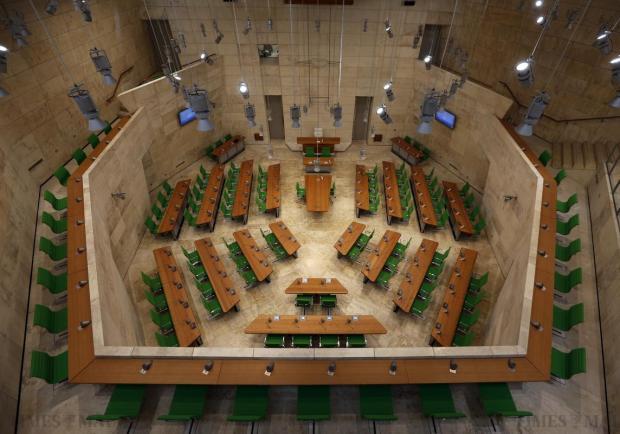The current rent reform bill making its way through Parliament is just the first step and tackles only one of the different Maltese housing issues, Founder of Malta Tenant Support Johanna MacRae told The Malta independent.
Malta Tenant Support is a group which strives to help tenants better understand their rights here in Malta, while offering support in the form of advice to them. They have been active participants offering ideas and their thoughts publicly on the 2019 rent reform process. MacRae is herself Maltese, but lived for a number of years in the UK. When returning to Malta with her family, she chose to rent accommodation, however went through a bad experience of her own. She described it as "one of the most unpleasant experiences of our lives." This experience was one of the major factors that led her to the setting up of Malta Tenant Support.
To my understanding you yourself had certain issues when renting in Malta. What happened?
When we moved back to Malta, we signed a rental contract. One contractual clause required us to pay €100 on account a month towards the ARMS bill. This sounded reasonable given we were paying around £100 a month in the UK for gas and electricity. For a year or so we never received a bill and when they did start coming I was surprised to find that they were in my landlord's name.
A year later, the landlord raised the amount we had to pay, and, again another year later, to €200 a month. I looked at one of the bills after asking permission to open one given that they were addressed in his name. I noticed that it read domestic tariff and zero residents. Over a few weeks I educated myself about the two Arms residential tariffs. I used the ARMS online calculator to work out the water and electricity consumption costs on the residential tariff had we - a household of 5 - all been listed on the bill, and on the domestic tariff, with a household of zero. The difference was 89% higher, so we were paying nearly double what we were meant to pay.
I challenged the landlord on this and asked him why he had previously denied that registering our household of 5 on the Arms bill would have made a difference. I asked him whether he did this because he was not declaring his rental income anddid not want to leave a paper trail showing the presence of rent paying tenants in his so called empty second property. To which he replied 'why should I pay tax?'

The contract clause stipulating the payment of x amount on account a month towards the Arms bill, was enough for the court to issue a precautionary garnishee order against us as prima facie we owed the money. Two years later the judgement was that we were indeed on the incorrect tarifffor people living in their primary residence and that therefore responsibility for the payment of the €1600 arrears was to be shared between our landlord and I.
The court case was only about establishing who was responsible for the so called arrears on the Arms bill. It was not about the correct implementation of the Arms billing system. In fact, I am more upset by the behaviour of Arms on this issue than I am by that of our ex landlord. The money trail ends at Arms - the sole, state owned utility billing company.
Do you hear about similar stories?
Yes, and what usually happens is that the tenant just pays up. To be honest, I think they are the sensible ones. I mean, I had to pay legal fees, court costs... My only satisfaction is that our ex landlord was held jointly responsible for the 'arrears'.
What other issues affect tenants today?
The pervading feeling among tenants is that they are powerless, helpless and at the mercy of their landlords. That is the sensation I took away from my experience from 6 years as a tenant and I see this with the many requests for help from tenants in my group.
One case which sticks in my mind is of a tenant who had a young child and a dog. Unfortunately, she fell into rent arrears. The landlord cut off the electricity supply - he did it himself and did not get Enemalta to do it - by doing something to the meter. He also took the front door off its hinges. Luckily, she lived in an apartment and blocked the entrance to her home with a chest of drawers to stop the toddler and dog from escaping. I visited her and together we went to the police station.
When we arrived, the policeman on duty at the time said the landlord had every right to remove the door as it was his. We then asked to speak to his superior who agreed that this was not correct. On this, I think it important that all stakeholders are educated about the legal rights and responsibilities of both tenants and landlords.

Some landlords seem to think that they can take the law into their own hands. When someone falls into home loan arrears the bank doesn't authorise the removal of a front door off its hinges. There are legal procedures to follow. I know that our justice system is slow. I understand that, but there is no justification for acting in this way.
Another issue is that some landlords think that the deposit is theirs by right, no matter whether the tenant ensures that the rental property is returned to the landlord in pristine condition or not. This issue is right up there with the Arms tariff issue as a bone of contention.
Other issues include that tenants are not being given enough notice when told that their lease will not be renewed.
Thankfully all these issues are being addressed to varying degree by the bill that is making its way through Parliament.
Rent prices in Malta are high, have tenants raised concerns about this?
Rent prices are a huge issue.
It is a pity that, while the NGO coalition on the rent reform - which includes MTS -proposed a three-year minimum contract, politicians decided on a one-year contract, which is basically the status quo.
What is happening right now is that tenants rent for one year and, at the end of the rental contract, the tenant is told to either pay €200 a month more, for example, or leave. If they can't pay, they leave and are replaced by a tenant who can. So, it's a game of not so musical chairs, with prices spiralling ever upwards.
People think that one law can solve all the different Maltese housing problems. There are 4 main Maltese housing problems: the problematic post 1995 rental market, the pre-1995 rents, the lack of social housing and the lack of affordable housing. We have to find different solutions to these different aspects of problematic Maltese housing policy.
The 2019 Residential Leases bill going through Parliament is going some way to addressing the first. Regarding the problematic pre 1995 rents, I think successive administrations have abdicated responsibility for this and in the process compounded the problem. Personally, I think resolving this should be a priority for the government. The current administration has introduced other measures such as increasing the rent subsidy, the equity sharing schemes and others, which are welcome.
A lot of people believe the rise in property prices was due to certain high-paying sectors like gaming...
When young foreign workers are priced out of the market they will share. So, if you have four salaried people sharing a house then they will price the single parent, for example, out of the market.
This is a major problem and the next step to take is to look at over-crowding and standards. Legislators need to look into this.
In the UK they have houses of multiple occupancy licences, where if you have more than one household in a home, you would need to have a certain number of bathrooms, smoke alarms etc.
Has the quality of rental accommodation changed over the years?
A lot of feedback I receive is that tenants - and I am not talking about €4,000 a month accommodation - are complaining of low standards.
The standards have remained the same even though the prices have increased. Rickety furniture, people using extension leads due to a single functioning socket in a kitchen, mould - which is a huge issue.

During the Committee debate on the bill, concerns were raised about a particular clause that would allow Housing Authority officials to enter private premises to verify whether a tenement is being occupied. What is your opinion?
I don't understand what the hysteria over this is. Parliamentary Secretary for Social Accommodation Roderick Galdes explained that this clause was designed to ensure that every tenant has access to a registered contract. This is because, if the tenant is renting without a registered contract, they are at a huge disadvantage. The tenant would not be able to avail themselves of the legal protection provided by the 2019 Residential Leases Act. In addition, such tenants would not be able to access the correct residential Arms tariff for people living in their primary residence and, if they are entitled to a rent subsidy, they would not be able to access this.
This is not the landlord's home that will be arbitrarily 'invaded' - as is being hysterically reported - by the housing authority official, but the home of the tenant at the request of the tenant, to establish that the tenant is indeed living in that property. I was distressed to see how this was reported by some sections of the press.
I don't see why the tenant should suffer because the government inadvertently provides a loophole for landlords to evade tax on their rental income. A loophole in the sense that there is no severe sanction for letting a property without a contract or without a registered contract. That loophole has to be firmly and thoroughly closed. The 2019 Residential Leases Act is already a watered down version of the original NGO proposals because the minimum length of contract is only 1 year and not 3 years. If this loophole is not closed, then the new legislation will not be worth the paper it is written on. The compulsory registration of the rental contract underpins the 2019 Residential Leases Act.